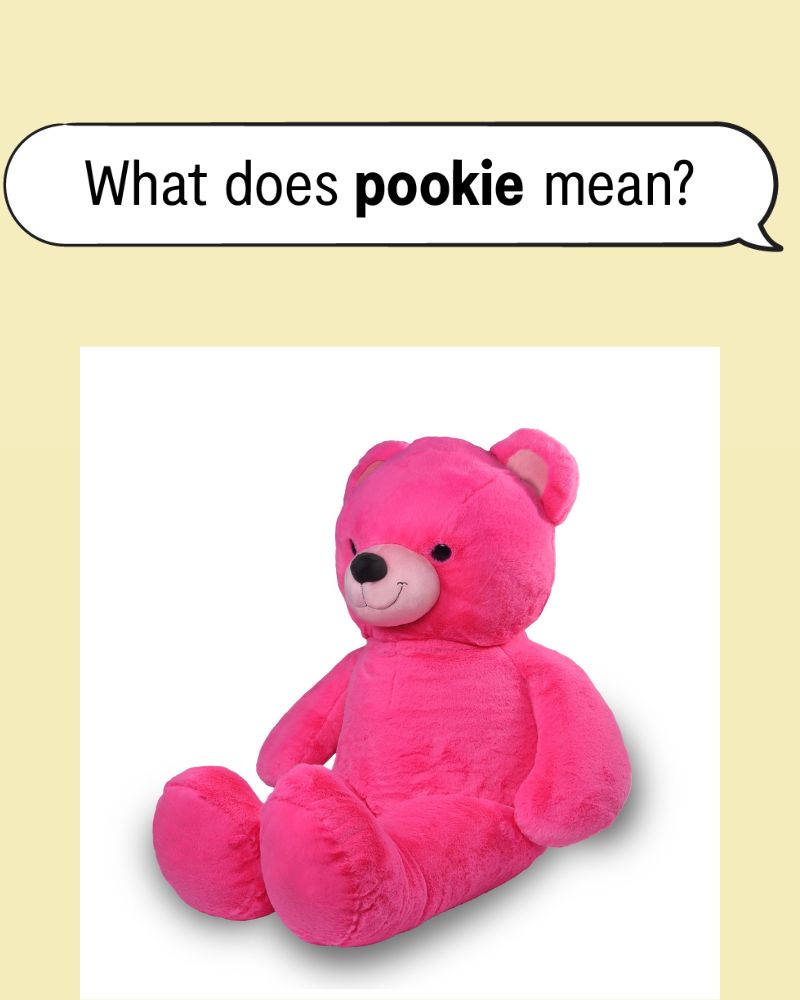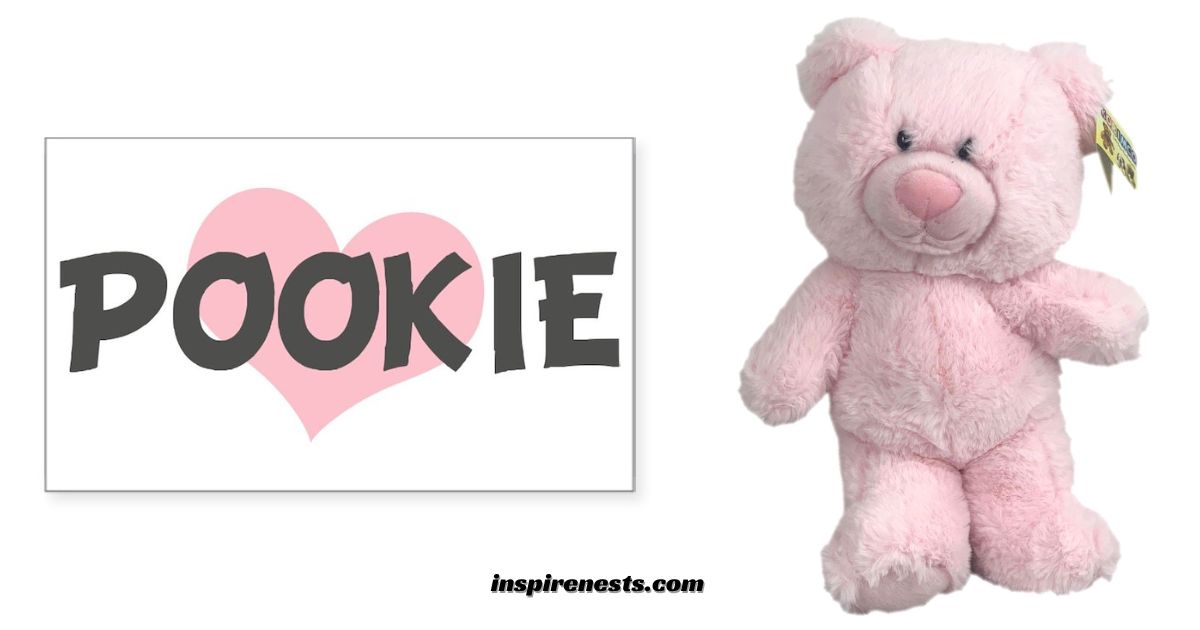Digital communication continues to shape how we express affection and intimacy in modern relationships. The term “pookie” has become increasingly popular across American culture. Understanding the pookie meaning in 2025 helps people navigate relationships with greater confidence and clarity.
This comprehensive guide explores every aspect of pookie usage, from romantic partners to close friends. Readers will discover appropriate contexts, professional boundaries, and effective alternatives for different relationship situations.
Read More: Walker Scobell Height, Age, Net Worth, Career & More
What Does Pookie Mean in 2025?

Pookie serves as an affectionate nickname that expresses warmth and familiarity. The pet name typically appears in conversations between people who share close emotional bonds. Modern usage demonstrates that pookie functions as a playful expression of care and connection.
The nickname carries several distinct meanings depending on relationship context. Romantic partners often use pookie to show intimacy and emotional closeness. Family members may adopt the term to express caring expressions in casual conversation. Close friends sometimes use pookie as a lighthearted interaction that strengthens their bond.
The Origins and Evolution of Pookie
The pookie meaning has evolved significantly from its original usage patterns. Historical records show that pookie emerged from regional American dialects before gaining widespread acceptance. Text slang and digital platforms accelerated the term’s popularity throughout the United States.
Social media platforms transformed how Americans use terms of closeness. Messaging culture encouraged shorter, more expressive communication styles. Pookie fit perfectly into this trend because it conveys complex emotions through simple expression. The term spread rapidly through texting language and online conversations.
Contextual Usage of Pookie in Modern Communication
Pookie in Romantic Relationships
Romantic partners use pookie to create intimacy and strengthen emotional connections. The term of endearment works particularly well during private conversations and intimate moments. Many couples adopt pookie as their preferred pet name because it feels unique and personal.
Pookie in Friendships and Family Settings
Close friends often adopt pookie as a caring expression that demonstrates their strong bond. The nickname works particularly well among friends who share similar communication styles. Pookie helps friends express affection without romantic implications or misunderstandings.
Pookie in Digital Communication
Texting language has embraced pookie as an efficient way to express affection in digital messages. The nickname appears frequently in text conversations between people who share close relationships. Pookie helps digital communication feel more personal and emotionally connected.
Professional and Social Boundaries with Pookie
Professional settings require careful consideration before using terms of endearment like pookie. Workplace communication style typically favors formal language over affectionate nicknames. Most business environments consider pookie inappropriate for colleague interactions and client communications.
What determines appropriate pookie usage in professional contexts? Relationship tone and workplace culture significantly influence acceptable language choices. Pookie rarely fits into formal vs informal language expectations in business settings. Professional communicators should avoid pet names that might create discomfort or misunderstandings.
Regional and Demographic Variations in Pookie Usage
American regions show different acceptance patterns for pookie usage across various demographic groups. Urban areas typically demonstrate higher familiarity with modern slang and colloquialisms like pookie. Rural communities may show more traditional preferences for established terms of endearment.
Age demographics significantly influence pookie acceptance and usage frequency. Younger generations embrace texting language and playful expressions more readily than older demographic groups. Messaging culture has shaped how different age groups perceive and use affectionate nicknames.
Alternatives to Pookie for Different Contexts
Romantic Alternatives
Romantic partners have numerous alternative nicknames available when pookie does not suit their communication style. Traditional options include sweetheart, darling, and honey, which offer timeless romantic appeal. Baby and babe provide contemporary alternatives that many couples prefer.
Friendly and Casual Alternatives
Close friends can choose from various affectionate alternatives that maintain appropriate boundaries. Buddy, pal, and similar terms express friendship without romantic implications. These alternatives preserve familiarity and warmth while respecting platonic relationship boundaries.
Formal and Professional Alternatives
Professional settings require alternatives that maintain respect while expressing positive regard. Terms like “colleague,” “partner,” or using actual names preserve professional boundaries while showing appreciation. These alternatives avoid the informal nature of pookie while maintaining a positive relationship tone.
Digital Communication Best Practices with Pookie
Text messaging requires consideration of recipient comfort and relationship context before using pookie. The nickname works well in private conversations but may seem inappropriate in group messages. Digital communication benefits from matching language choices to relationship dynamics and platform expectations.
Social media usage of pookie should consider public visibility and audience expectations. Private messages allow more informal language than public posts or comments. Messaging culture varies between platforms, requiring users to adjust their communication style accordingly.
Cultural Impact and Social Acceptance of Pookie in 2025
Mainstream media representation has significantly increased pookie acceptance across American culture. Television shows, movies, and music frequently feature pookie usage, normalizing the term for diverse audiences. This media exposure has helped pookie transition from regional slang to nationally recognized affectionate language.
Entertainment influence continues shaping how Americans perceive and use pookie in their personal relationships. Popular culture demonstrates various relationship contexts where pookie enhances emotional expression. This cultural reinforcement strengthens pookie acceptance across different demographic groups.
Common Misunderstandings and Misconceptions About Pookie
Relationship context confusion represents the most common pookie misunderstanding. Some people assume pookie automatically implies romantic interest, while others view it as purely platonic. Clear communication about intended meaning helps prevent these misunderstandings in personal relationships.
Professional boundary confusion occurs when people use pookie inappropriately in workplace settings. The nickname rarely suits professional communication standards, regardless of colleague relationships. Understanding these boundaries prevents uncomfortable situations and maintains professional relationship dynamics.
Future Trends and Evolution of Pookie Usage
Digital communication evolution will likely influence pookie usage patterns in coming years. New platforms and messaging technologies may create additional contexts for affectionate language expression. Pookie adaptability suggests continued relevance in evolving communication landscapes.
Generational shifts will probably expand pookie acceptance as younger users mature and establish long-term relationships. Contemporary slang often transitions into mainstream usage through generational change. Pookie shows strong potential for continued growth and acceptance across American culture.
Practical Guidelines for Using Pookie Appropriately
Relationship assessment should precede pookie usage in any conversation. Consider the existing bond, communication history, and mutual comfort levels before introducing affectionate nicknames. Pookie works best when both people understand and accept its emotional implications.
Context evaluation helps determine whether pookie suits specific communication situations. Informal settings generally accommodate pookie better than formal environments. Professional settings typically require more formal language choices that maintain appropriate boundaries.
Read More: Kai Cenat Real Name, Age, Height, Family & Net Worth 2025
Conclusion
The 2025 pookie meaning encompasses significantly more than simple nickname usage in modern American communication. This comprehensive analysis demonstrates that pookie represents contemporary relationship communication that effectively balances affection, playfulness, and meaningful emotional expression. Understanding appropriate contexts and established boundaries enables individuals to utilize pookie effectively across diverse relationship configurations.

Admin of Inspirenests.Com, dedicated to fostering educational growth and inspiration. Passionate about delivering reliable and insightful resources to empower learners and educators on their journey to success.
